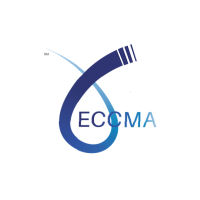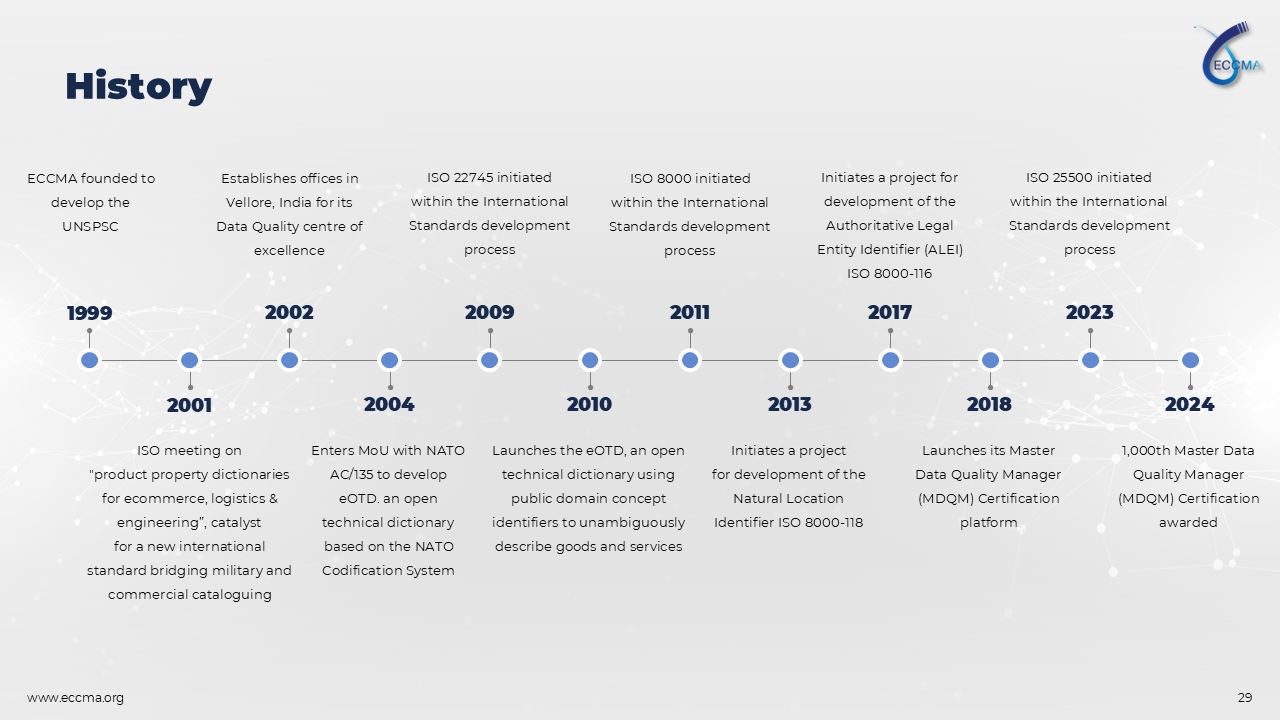About ECCMA’s work on supply chain data quality
ECCMA’s mission is to champion the development and adoption of international standards for quality, interoperable supply chain data. Through collaborative efforts among industry and government, ECCMA enhances data & information accuracy and reduces costs associated with identifying and describing individuals, organizations, locations, goods, and services within business systems worldwide.
Transforming the digital supply chain
The implementation of international data standards is accelerating access to authoritative, trustworthy data, and fueling supply chain innovation worldwide. ECCMA is a global community driven by the pursuit of reliable and timely data, empowering individuals and organizations to make informed decisions with confidence.
Our priorities are to:

ECCMA and Standards development
ECCMA is a Standards Development Organization (SDO) recognized by the International Organization for Standardization (ISO) and the American National Standards Institute (ANSI).
ECCMA is a Category A liaison to ISO and the ANSI appointed administrator of the US Technical Advisory Group to the ISO committees ISO/TC 184 (Automation systems and integration), SC 4 (Industrial data) and SC 5 (Interoperability, integration, and architectures for enterprise systems and automation applications).
ECCMA is the current project leader for the development of ISO 8000, ISO 22745, and ISO 25500 which are the international standards for data quality, the exchange of material and service master data, and supply chain interoperability and integration.
ECCMA provides a platform for collaboration amongst subject experts on data quality and data governance around the world to build and maintain global, open standard dictionaries that are used to unambiguously label information. The existence of these dictionaries of labels allows information to be passed from one computer system to another without losing meaning.

abot-us-image
Greece
Member value
ECCMA equips Members with standards-based solutions for strategic sourcing and supply chain management. We ensure that our members can leverage international data standards to drive secure digital transformation, reduce cost, reduce risk, and achieve operational excellence in a rapidly evolving and connected global marketplace.
ECCMA performs data quality assessment studies and assists its members in improving the accuracy of their data by providing training, certification, and standards-based, AI-enhanced data cleansing and data verification projects.
Board Members





Emeritus Directors






